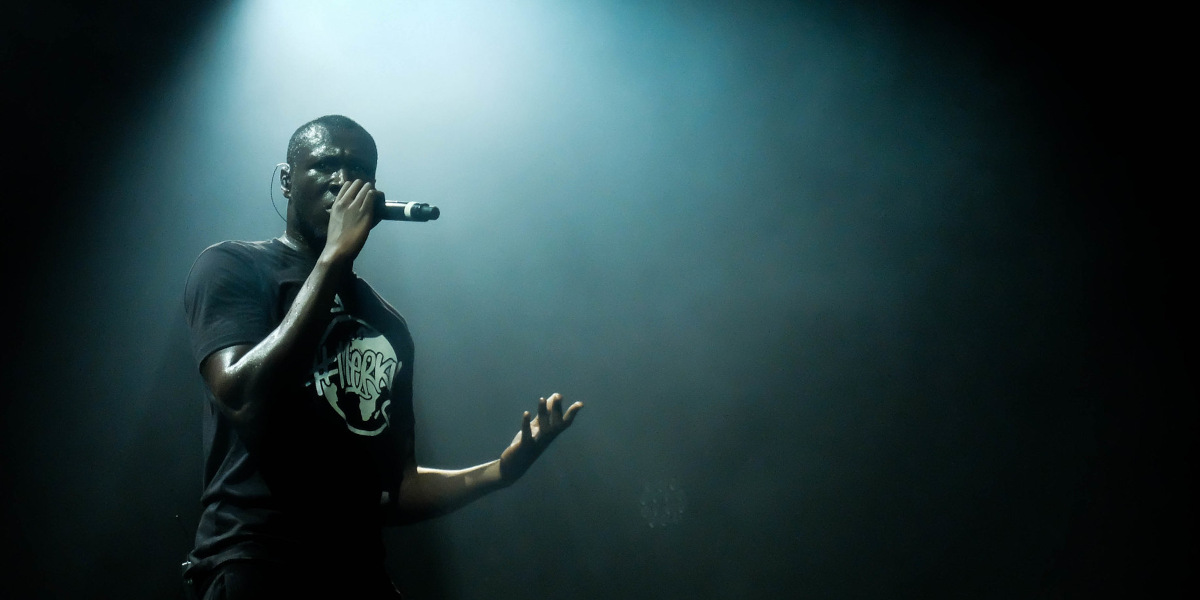This week at the Brits, Stormzy spat fire straight in the direction of the right-wing establishment. His freestyle drew the public’s attention back to Grenfell, which last summer became both a shocking and powerful symbol of our deeply inequitable society. This was a tragedy the establishment would sooner we forget, but Stormzy represents a wave of dissenting voices that will not be silenced.
Directly calling out Theresa May to ask ‘Where’s the money for Grenfell?’, Stormzy left viewers in no doubt where the culpability lies. Amid widespread condemnation, shadow chancellor John McDonnell had already characterized what happened at Grenfell as a form of social murder and he was quite right in doing so.
The victims of Grenfell were indeed victims of structural violence. They were victims of a deeply unequal system. They were victims of a society which places a greater value on the aesthetic of high-rise buildings than the safety of Black, Brown, and working-class lives.
Through their callous policies and (in)actions, the current Conservative government are murdering the most vulnerable. And it didn’t begin nor does it end with Grenfell. Disabled, working-class, and Black and Brown communities are all disproportionately suffering under the current government’s ruthless austerity agenda – women are too.
As recent research published in the British Medical Journal argued, cuts to health and social care between 2009 and 2014 were associated with 45,000 deaths in the UK. If these trends continue, government cuts could lead to nearly 100 further deaths every day until 2020.
As he described the government as ‘criminals’, Stormzy used his platform this week to point to the hypocrisy that lies at the heart of the current social system. It is this hypocrisy that allows the government to evade accusations of criminality and immorality. The powerful should be held culpable, they ‘should do some jail time, [they…] should pay some damages’, Stormzy argued.
Confronting hypocrisy
But what we define as murder – just like what we define as criminal – is determined by structures of power. Despite the inhumanity underpinning Conservative policies, it is Black men who continue to get locked up, while Tony Blair not only escapes war crime charges but maintains a political platform and livelihood.
As Adam Elliot-Cooper argues, such hypocrisies mean that ‘if you’re suspected of handling a gun in Tottenham, you’ll probably be arrested. In fact, if you’re Mark Duggan, you’re executed on the spot. But if you sell F-16s to Saudi Arabia or Israel, you’ll probably get an OBE.’
Stormzy spoke to this imbalance in power: ‘we should burn your house down and see if you can manage this.’ In so doing, he draws attention to who it is that has the power to destroy lives. The establishment are insulated – both metaphorically and literally – from the inequalities they have created.
As he warns the audience ‘they’ll get me for this, so be woke’, Stormzy showed he is not naive to the multifarious and unrelenting ways in which the right-wing establishment seek to silence and discredit dissenting voices. We need only look at the sustained attack on Jeremy Corbyn from the right to see the lengths they will go in their attempts to undermine a counter-movement.
In order to maintain the racist conditions in which we live, Black men have long since been framed as a ‘threat’. But Stormzy is emblematic of a generation redefining what it means to be a threat. ‘Raised up by Black girl magic’, as he put it, Stormzy is part of a movement threatening the status quo.
We should all take his lead in confronting the Conservative government and its murderous policies head on. We are part of a growing movement for a more just society and it is the government, not us, that should be scared.










